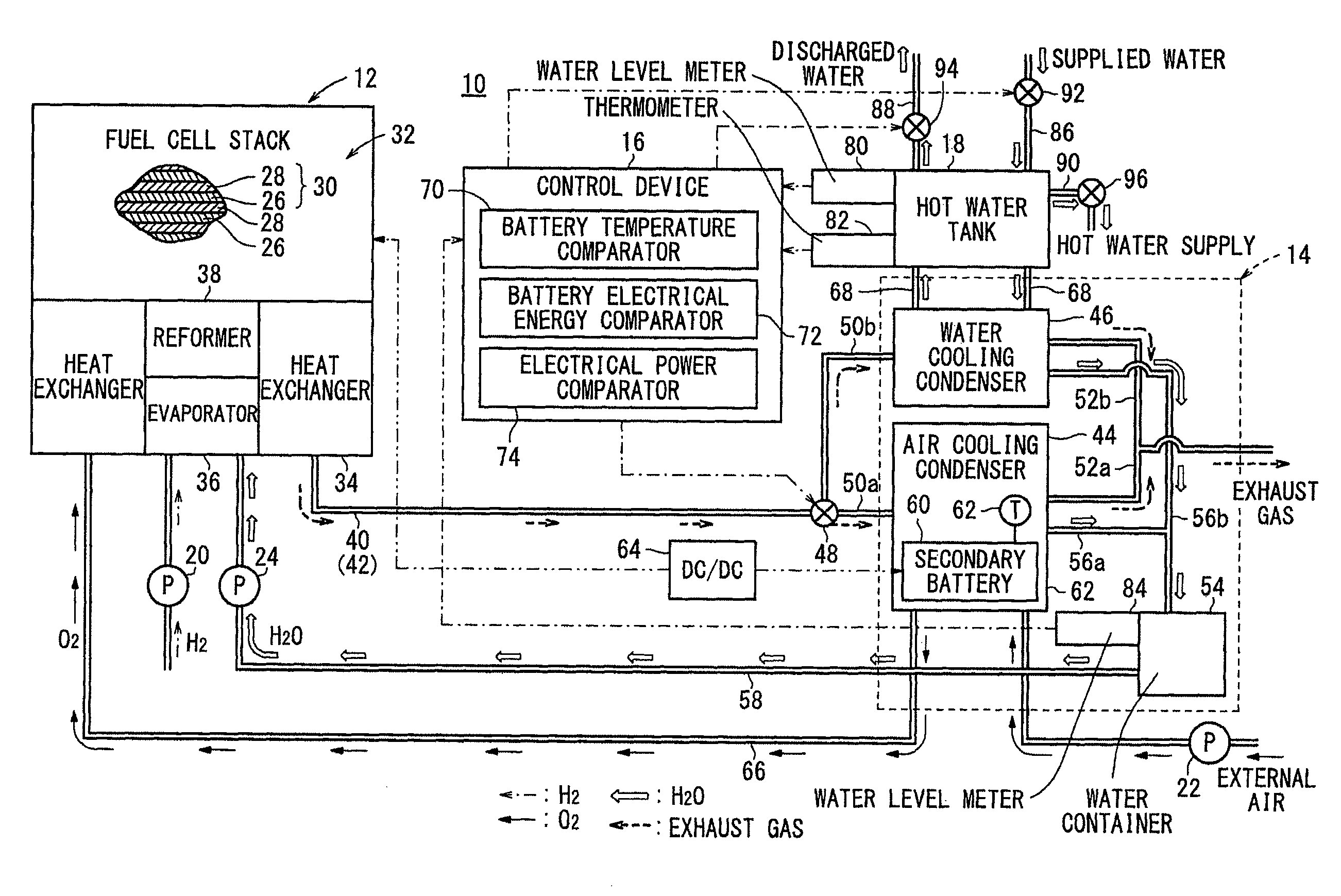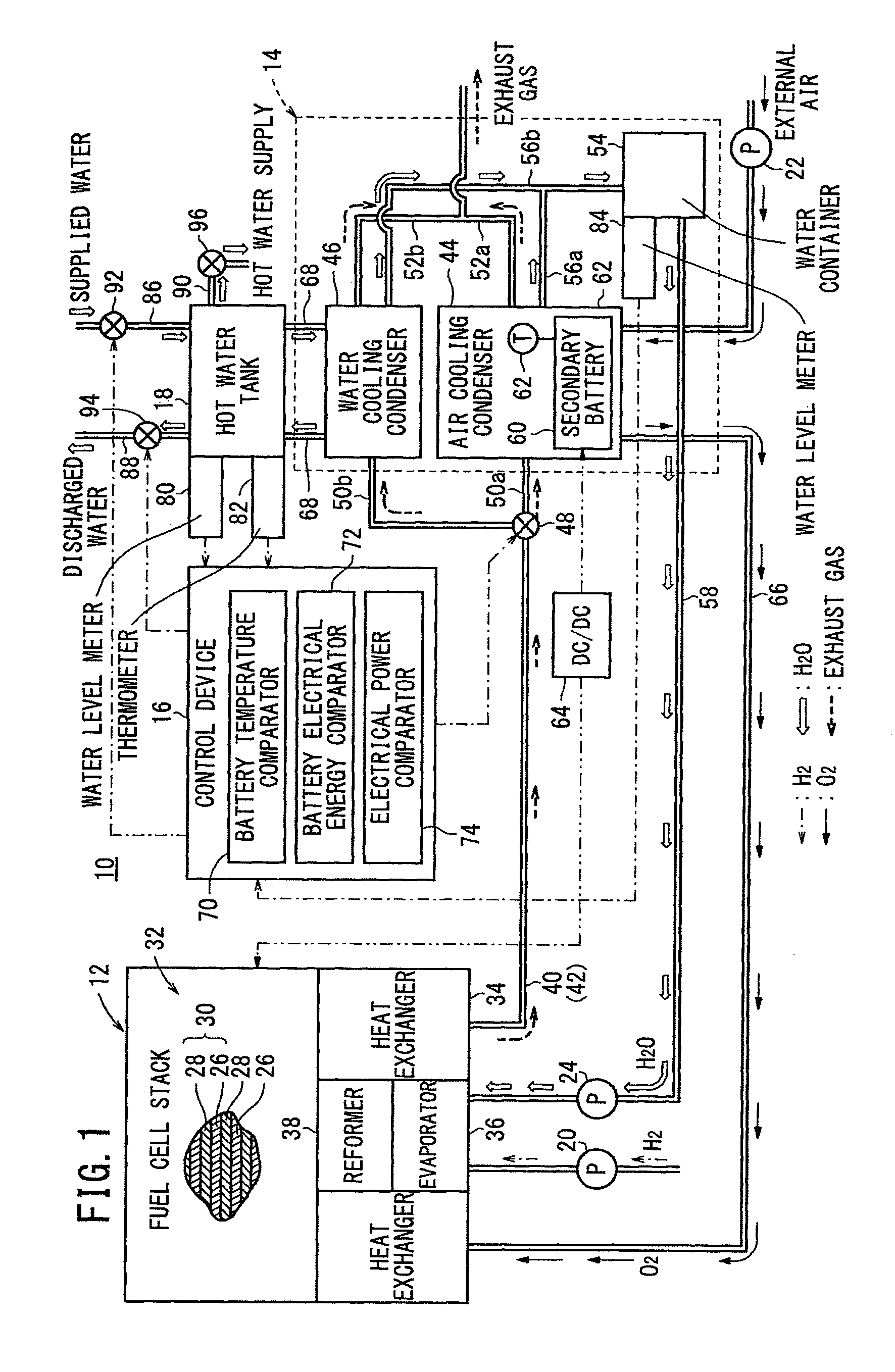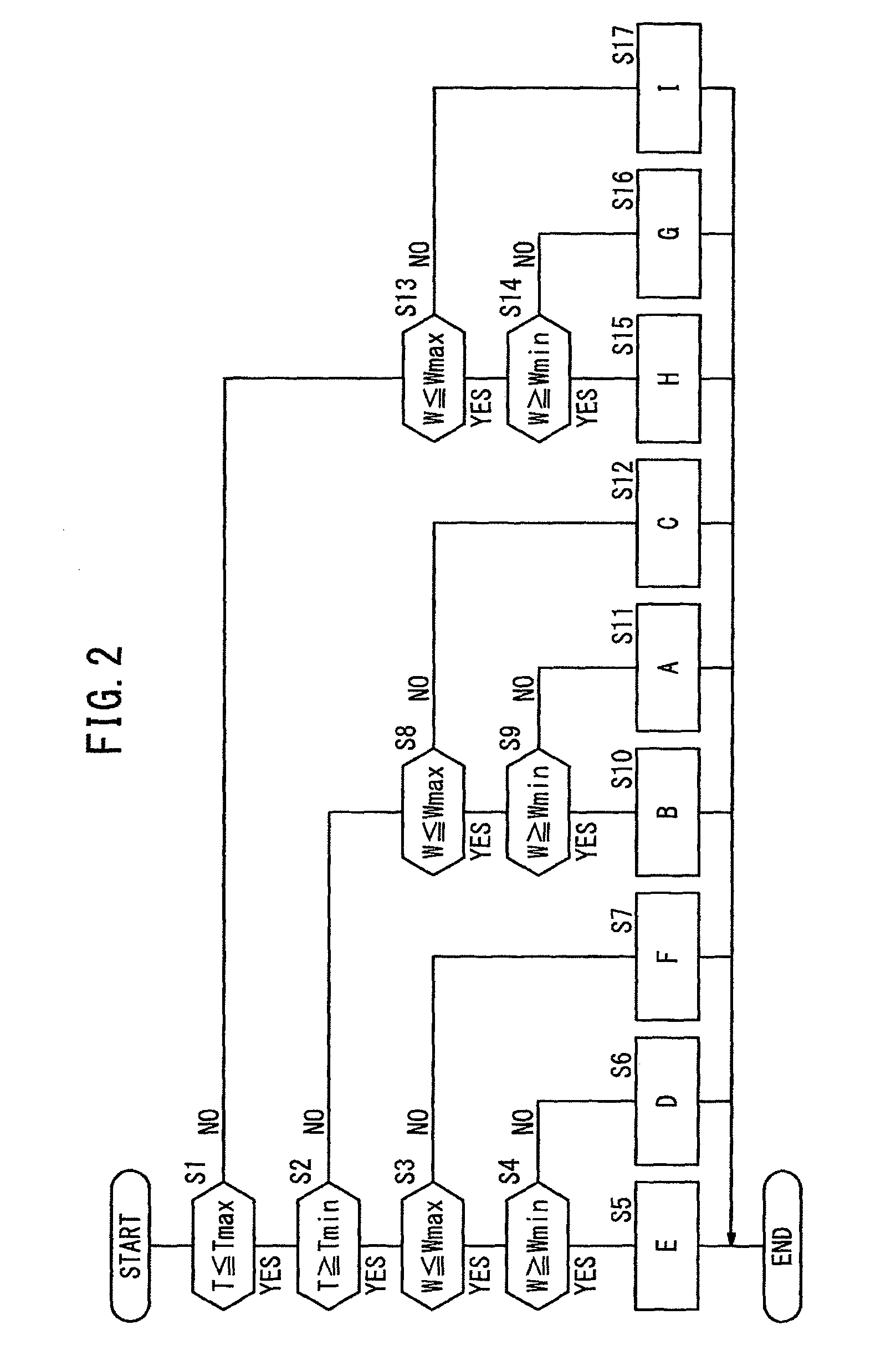Fuel cell system
a fuel cell and system technology, applied in the field of fuel cell systems, can solve the problems of difficult to keep the na-s battery in the operating state all the time, na-s battery may be overheated, sodium-sulfur heat shortage may occur, etc., to achieve effective heat utilization without excessive losses in electrical power, and suppress electrical power loss. , the effect of rapid fluctuation of electrical power
- Summary
- Abstract
- Description
- Claims
- Application Information
AI Technical Summary
Benefits of technology
Problems solved by technology
Method used
Image
Examples
first embodiment
[0028]A fuel cell system 10 according to the present invention is used in various applications, including stationary and mobile applications. For example, the fuel cell system 10 is mounted in a vehicle.
[0029]As schematically shown in FIG. 1, the fuel cell system 10 includes a fuel cell module 12 for generating electrical energy in power generation by electrochemical reactions of a fuel gas (hydrogen gas) and an oxygen-containing gas (air), a condenser 14 for condensing water vapor in an exhaust gas discharged from the fuel cell module 12 by heat exchange between the exhaust gas and a coolant to collect the condensed water and supplying the collected condensed water to the fuel cell module 12, a control device 16, and a hot water tank (storage unit) 18 for storing water as the coolant.
[0030]The fuel cell module 12 is connected to a fuel gas supply apparatus (including a fuel gas pump) 20 for supplying a raw fuel (e.g., city gas) to the fuel cell module 12, an oxygen-containing gas s...
second embodiment
[0096]FIG. 5 is a diagram schematically showing a fuel cell system 100 according to the present invention.
[0097]The constituent elements that are identical to those of the fuel cell system according to the first embodiment are labeled with the same reference numerals, and description thereof will be omitted.
[0098]In the fuel cell system 100, an air cooling fan 102 is attached to the air cooling condenser 44. Therefore, in the air cooling condenser 44, the external air (oxygen-containing gas) forcibly supplied from the air cooling fan 102 cools the exhaust gas discharged from the fuel cell stack 32, and the external air is used as a coolant during discharging of the secondary battery 60.
[0099]In this manner, in the second embodiment, the same advantages as in the case of the first embodiment are obtained. For example, water self-sustaining operation and thermally self-sustaining operation are facilitated, and overall efficiency and load following performance are improved advantageous...
PUM
| Property | Measurement | Unit |
|---|---|---|
| operating temperature | aaaaa | aaaaa |
| electrical energy | aaaaa | aaaaa |
| temperature | aaaaa | aaaaa |
Abstract
Description
Claims
Application Information
 Login to View More
Login to View More - R&D
- Intellectual Property
- Life Sciences
- Materials
- Tech Scout
- Unparalleled Data Quality
- Higher Quality Content
- 60% Fewer Hallucinations
Browse by: Latest US Patents, China's latest patents, Technical Efficacy Thesaurus, Application Domain, Technology Topic, Popular Technical Reports.
© 2025 PatSnap. All rights reserved.Legal|Privacy policy|Modern Slavery Act Transparency Statement|Sitemap|About US| Contact US: help@patsnap.com



